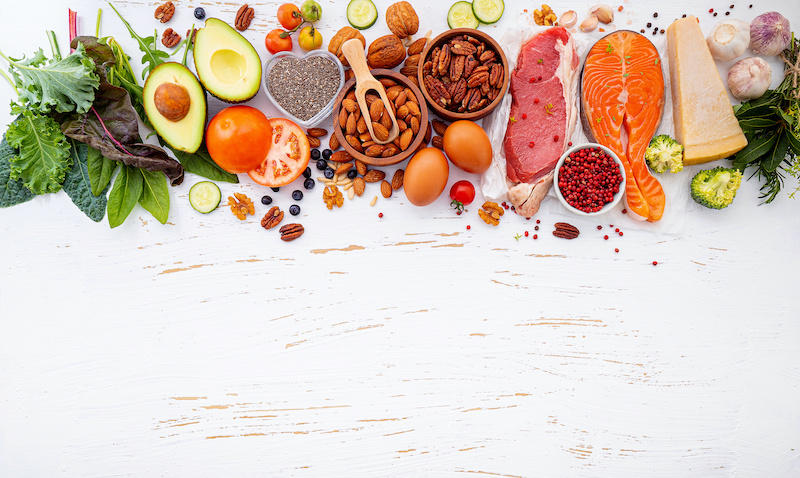Things You Should Eat and Avoid with Heart Disease

Diet for Heart Disease
For those with heart disease, maintaining a heart healthy diet is an important part of managing your disease. Some foods promote heart health while others negatively impact the heart and should be avoided to minimize risks. The connection between nutrition and heart health should not be undermined. For example, hyperlipidemia and hypertension are risk factors in heart disease. A heart healthy diet can help reduce total cholesterol, bad cholesterol, triglycerides, and blood pressure. A simple lifestyle change in diet can reduce chances of heart issues in the future.

Foods you should eat
According to American Heart Association, a heart-healthy diet focuses on:
- Vegetables
- Fruits
- Nuts
- Whole grains
- Lean animal protein
- Fish
Foods you should not eat
Heart-healthy diets should avoid:
- Trans fats
- Saturated fats
- Red meat
- Processed meats (hot dogs, salami, pepperoni, bologna)
- Refined carbohydrates (white breads, crackers, salty snack foods, baked goods)
- Sweetened beverages
Decrease Sodium
This in heart failure must follow a sodium restricted diet. This is because salt attracts water and too much salt will contribute to the fluid overload that heart failure causes and increase blood pressure. This will make your heart have to work harder and can cause other issues. A sodium restricted diet is between 1,500 and 2,000 mg a day. Your doctor will tell you what your limit is. You can follow this by paying attention to food labels and reading the sodium content of what you are eating.
Decrease Saturated and Trans fats
Saturated and trans fats are the bad fats and they increase the bad cholesterol in your body known as LDL. LDL cholesterol will promote plaque buildup in your arteries and increase risk of heart disease or problems from it. A better choice is consuming good fats, or monounsaturated and polyunsaturated fats. These are found in nuts, seeds, avocados, olives, flaxseed, soy and fatty fish.
Summary:
- Heart-Healthy Diet Overview: Managing heart disease involves maintaining a heart-healthy diet to reduce risks. Nutrition plays a crucial role in addressing risk factors like hyperlipidemia and hypertension.
- Foods to Include: Emphasize a diet rich in vegetables, fruits, nuts, whole grains, lean animal protein, and fish, as recommended by the American Heart Association.
- Foods to Avoid: Heart-healthy diets should limit or exclude trans fats, saturated fats, red meat, processed meats, refined carbohydrates, and sweetened beverages.
- Sodium Restriction: For those with heart failure, adhering to a sodium-restricted diet (1,500-2,000 mg/day) is essential to manage fluid overload and blood pressure. Monitoring food labels helps control sodium intake.
- Managing Fats: Reduce intake of saturated and trans fats, which increase LDL cholesterol and contribute to arterial plaque buildup. Opt for healthier fats found in nuts, seeds, avocados, olives, flaxseed, soy, and fatty fish.
- Moderation is Key: While eliminating certain foods may be challenging, moderation is crucial. Occasional small portions of restricted foods are acceptable but should not be a regular part of the diet.

This article reviewed by Dr. Jim Liu, MD and Ms. Deb Dooley, APRN.
There’s nothing more important than our good health – that’s our principal capital asset.
#medical #telehealth #umedoc






